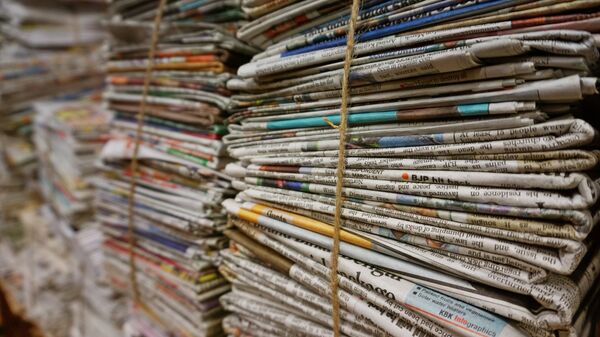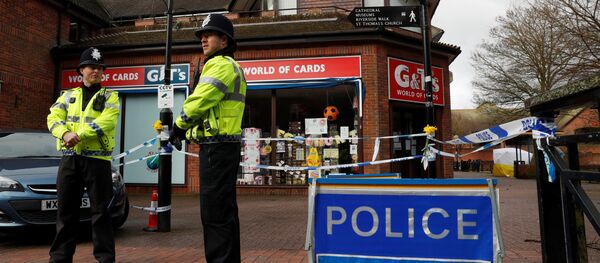Unnamed 'security sources' have told The Times that they may have pinpointed the location of the "covert Russian laboratory" which allegedly created the chemical agent used to poison the Skripals.
According to the newspaper, government ministers and security officials "were able to identify the source using scientific analysis and intelligence" soon after the attack. "We knew pretty much by the time of the first Cobra [the emergency coordination briefing] that it was overwhelmingly likely to come from Russia," a Whitehall source said.
The Times' source insisted that the security services have a "high degree of confidence" regarding the location where the chemical was produced, but admitted they were not 100% certain.
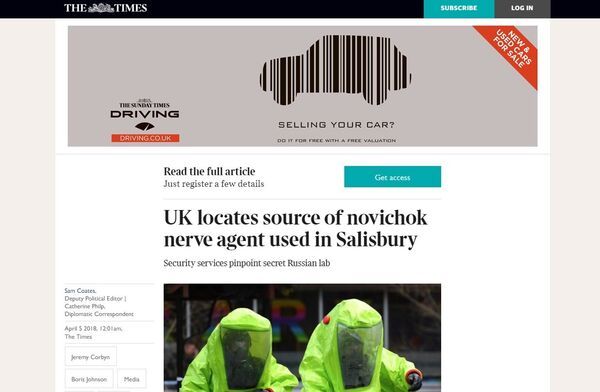
Not to be outdone, The Sun ran a similar story, claiming that a lab run by Russia's SVR foreign intelligence service in the Moscow district of Yasenevo was the "likely" creator of the poison. The tabloid paraphrased unnamed 'security sources', who told the newspaper that the Russian lab is "one of a handful of labs in the world that produces the nerve agent."
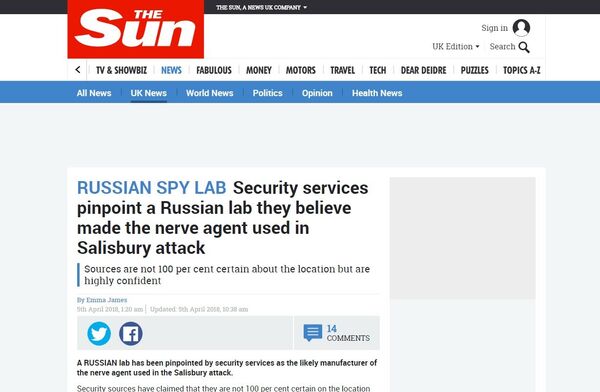
No Proof Needed
The pair of stories comes 48 hours after the admission by Porton Down Defense Science & Technology Laboratory chief Gary Aitkenhead's admission that the military could not definitively conclude that the nerve agent believed used in the Skripal case was of Russian origin.
The new media efforts to implicate Russia, using unnamed sources and terms such as "likely" and "high degree of confidence" is reminiscent of the kind of language used by the British government in the days and weeks following the poisoning. However, following Tuesday's revelation by Mr. Aitkenhead, the government and Foreign Secretary Boris Johnson in particularly have been reeling from their attempts to definitively claim Russian involvement in the Skripal case.
Why would @foreignoffice delete this tweet from 22 March? pic.twitter.com/Nvu1BfJw9J
— Russian Embassy, UK (@RussianEmbassy) 4 апреля 2018 г.
FCO tweet deleted. Porton Down do not say 'produced in Russia'. Assume Foreign Secretary wishes his interview with same claims could also be deleted. https://t.co/lDioScLzz8
— Diane Abbott (@HackneyAbbott) 4 апреля 2018 г.
Some outlets, including The Independent, decided to meet Aitkenhead's revelations with a stiff upper lip, insisting that Russia's efforts in the Skripal case, including its "ever more reasonable-sounding but insincere offers" to help in the investigation, don't change "the overwhelming probability that the novichok nerve agent originated in Russia…" It is simply "inconceivable that anyone other than the Russians" could organize such a plot, according to the newspaper.
As for Russia's demand that London actually prove its allegations, The Independent suggests that "a legal standard of proof is not required," adding that the kind of proof asked for by Moscow is "impossible to achieve." The paper even accuses Labour leader Jeremy Corbyn and others of 'buying into' the arguments presented by the Russians.

Ministry of Truth
Also, even as the case against Russia over the Salisbury poisoning slowly falls apart, some UK and other Western media continue an effort to further poison Russia-Western relations, insisting that Russia is surely responsible for the attack, and criticizing their governments for not being tough enough on Moscow.
Rather, the business news agency says, the West should band together to turn up the heat to "counter the domestic propaganda that Putin has used to increase his popularity and build anti-Western sentiment. Reaching out to Russians in big cities and neighboring countries, where dissent exists and could be encouraged, the US and its allies should make clear that the cause of their complaints is Putin and his helpers, not Russia at large."
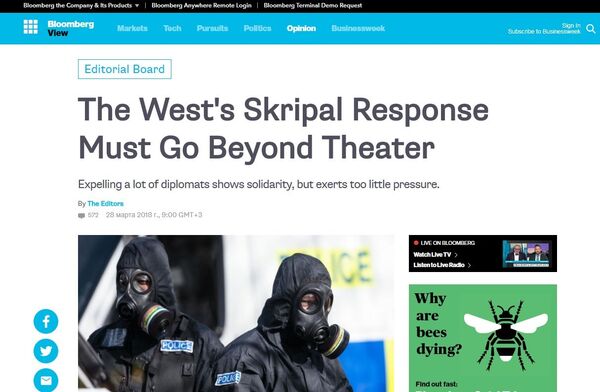
Commenting on the Bloomberg piece, Rossiya Segodnya politics contributor Viktor Marakhovsky quipped that the logic of the story was just brilliant: "When Russia appeals to the citizens of Western countries with criticism toward their authorities, this is propaganda and an attempt to assert influence. But when it's the other way around, this is a fight against internal propaganda and bringing the truth to Russia," he wrote.
The Guardian issued its own editorial, recommending paying more attention to the 'home front' to arrange a nationwide informational manhunt of 'Putin's trolls'.
Complaining about The Guardian's comments section being "infected" by "Russian trolls," the editorial says that while not all offending accounts or hashtags may be Russian-made, "its sentiments chime sufficiently with the trolls' aim for them to boost it."
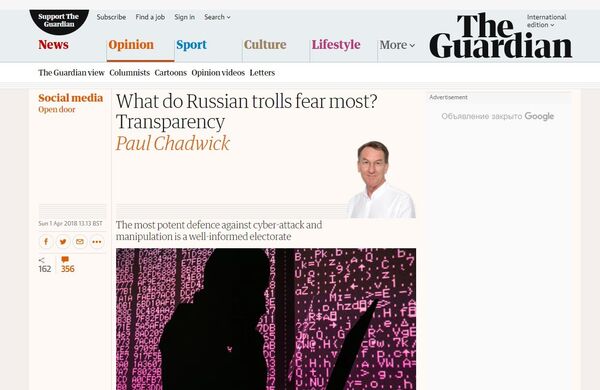
In other words, Marakhovsky commented, these non-Russian accounts are de facto "enemies because they think and write the wrong thing." In this way, the journalist noted, the newspaper is effectively calling on Western media "to assume the functions of the Ministry of Truth – to identify both Russian trolls and those who have been infected by their propaganda…and explain to them why their views are wrong, because they happen to agree with the opinion of the Russian foe."
Russian ex-spy Sergei Skripal and his daughter Yulia were hospitalized in Salisbury, southern England on March 4 following a chemical attack thought to involve the A-234 nerve agent. Sergei remains in critical condition; his daughter has regained consciousness and is making a recovery. London almost immediately accused Moscow for the attack, and initated a series of measures directed against Russia, including the expulsion of 23 Russian diplomats. Many of the UK's allies have followed suit. Moscow has rejected London's accusations, saying claims of Russian involvement are entirely unsubstantiated.
